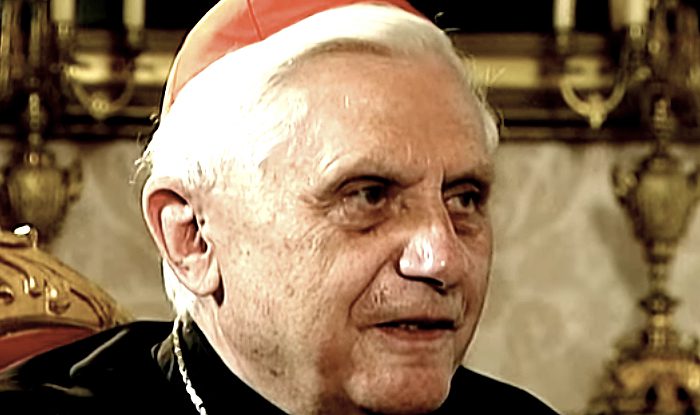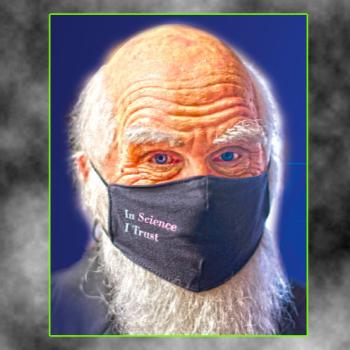
IN 2008, Katrina Spade, above started questioning conventional means of disposing of human corpses and began researching environmentally sustainable alternatives to the $20-billion US funeral industry, which she considered toxic and dehumanising.
That research led to the creation of the world’s first human-composting funeral home – Recompose – in the city of Seattle in Washington state. Recompose can turn a body into around a square meter of soil (the equivalent of several wheelbarrows’ worth) in just 30 days. This saves more than a tonne of carbon dioxide compared to cremation or traditional burial and uses only one-eighth of the energy cremation takes.
Soon after Colorado and Oregon legalised the process of converting corpses into soil, and now New York is considering doing the same.
The New York State Catholic Conference is appalled at the prospect of the process being legalised in their state, and earlier this year issued a “memorandum of opposition” saying:
Like many faith traditions, the Catholic Church’s reverence for the sacredness of the human body and its dignity arises out of concern for both the body’s natural and supernatural properties.
It is therefore essential that the body of a deceased person be treated with reverence and respect. A process whereby human remains are composted and scattered ‘in a designated scattering garden or area in a cemetery’ (bill language) fails to sufficiently respect the dignity due the deceased.
While not everyone shares the same beliefs with regard to the reverent and respectful treatment of human remains, we believe there are a great many New Yorkers who would be uncomfortable at best with this proposed composting/fertilizing method, which is more appropriate for vegetable trimmings and eggshells than for human bodies.

When Colorado was considering allowing the process, Denver Post columnist and broadcaster Krista Kafer, right, wrote she thought it a good idea, but pointed out:
Understandably, some people may recoil from the idea of turning human remains into soil. The Colorado Catholic Conference opposes the legislation because ‘The Catholic Church teaches that human life and the human body are sacred, and the dignity of the human person is the foundation of a moral society. The conversion of human remains to soil does not promote human dignity.’
Then she stupidly added:
In my opinion, the Catholic Church has been the most courageous of the Christian denominations in protecting the dignity and preciousness of all human lives from conception to natural death. The church seeks to protect the dignity of the human body after death and to prevent the trivialization of death and burial. This is commendable.
I did a double take when I read that last paragraph, especially given the way bodies were disposed of at the Tuam Catholic orphanage in Ireland, and at three of their schools in Canada.
Precious little dignity of the human body there.
Then my mind went back to AIDS epidemic of the 1980s and 1990s, when, instead of supporting measures to stop the spread of the virus, the RCC made the situation infinitely worse – especially in Africa – by opposing the use of condoms.
From Wikipedia:
In 1988, a debate within the Catholic Church over the use of condoms to prevent AIDS sparked an intervention from the Vatican. The Church in 1968 had already stated in Humanae Vitae that chemical and barrier methods of contraception went against Church teachings.
The debate was over whether or not condoms could be used, not as contraceptives, but as a means of preventing the spread of HIV/AIDS and other sexually transmitted diseases. In 1987, the U. S. Conference of Catholic Bishops issued a document suggesting that education on the use of condoms could be an acceptable part of an anti-AIDS program.

In response, Joseph Ratzinger, [above], then-Prefect of the Sacred Congregation for the Doctrine of the Faith, stated that such an approach “would result in at least the facilitation of evil,” not merely its toleration.
Pope John Paul II upheld the church’s traditional prohibition on condoms. His position was harshly criticized by some doctors and AIDS activists who said that it led to deaths and millions of AIDS orphans. It was also suggested that his position on condoms cost him the Nobel Peace Prize, which he was widely expected to receive.
In September 1990, John Paul II visited the small town of Mwanza, in northern Tanzania, and gave a speech that many believe set the tone for the AIDS crisis in Africa. John Paul II said that condoms were a sin in any circumstance. He lauded family values and praised fidelity and abstinence as the only true ways to combat the disease.
In December 1995, the Pontifical Council for the Family issued guidelines saying that “parents must also reject the promotion of so-called “safe sex” or “safer sex,” a dangerous and immoral policy based on the deluded theory that the condom can provide adequate protection against AIDS.”
I don’t know Krista Kafer, but were I ever to meet her I would print he words “the Catholic Church has been the most courageous of the Christian denominations in protecting the dignity and preciousness of all human lives from conception to natural death” on a foot-long long spliff packed with cannabis grown in human compost and make her smoke it to the stub.
Oh, wait, Kafer is no fan of cannabis, which is legal in Colorado.
For the record, Kafer was a leading figure in a failed campaign to have Colorado ban late-term abortions.















